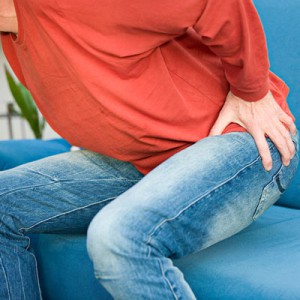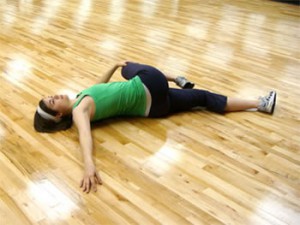Are you a fitness enthusiast or a dedicated athlete who has suddenly been sidelined by a nagging, persistent pain in your calf and ankle? That sharp or aching sensation that flares up during or after activity could be the result of Achilles tendonitis. The Achilles...
We’ve all seen soccer players sidelined by common but painful injuries like ankle sprains, knee ligament tears, and muscle strains. The combination of running, sudden stops, quick cuts, and potential physical contact makes the body, particularly the lower extremities,...
Spinal cord injuries are among the most serious and life-altering injuries a person can sustain. The spinal cord, a complex bundle of nerves, is the primary pathway for communication between the brain and the rest of the body. When it’s damaged, a patient could be...
Seven Signs It’s Time to Consult an Orthopaedic Hip Surgeon

Is your hip pain or stiffness leading you to believe that you may need hip surgery? The following list includes the top seven signs that it’s time to consult an orthopaedic hip surgeon. If you are experiencing one or more of these symptoms, talk to your primary care physician about getting a referral for an orthopaedic surgeon.
1. The pain interferes with daily functioning. Daily functioning can include, but is not limited to, walking, climbing stairs, and getting in and out of chairs and bathtubs. The pain must be persistent or recurring over an extended period of time. An occasional bout of hip pain is normal, but you should see a doctor if you have severe, long-term pain that compromises your daily routine. You don’t want debilitating pain to lead to extended inactivity and depression.
2. The pain or stiffness prevents you from doing activities that involve extensive sitting or laying down. Do you find that it’s difficult to watch a movie in a single stretch or sit in the car for more than half an hour at a time? Are you having trouble sleeping because the pain is so severe? If you answered yes to any one of these questions, it may be time to speak with your physician to learn about solutions available to you.
3. Morning stiffness lasts less than half an hour. Stiffness that persists for 45 minutes or longer is an indication of rheumatoid arthritis, a chronic inflammatory condition that generally affects the small joints in the hands and feet. Since there is no cure for rheumatoid arthritis, surgery is not a viable solution. If you believe that you have this condition, you should still consult with your primary care physician to learn about treatment options.
4. Nonsurgical interventions and the use of a cane or other walking aids are no longer helping. Have you been using medications and/or injections to treat the pain and stiffness? Have you been issued a cane or walker? A hip replacement is a last resort for hip pain and stiffness, but eventually it may become necessary. Doctors do everything that they can to delay surgery as long as possible in favor of less invasive treatments. However, when these treatments no longer work, it may be time to consider surgery.
5. The bone is damaged. How do you know if your bone is damaged? An orthopaedic surgeon will perform a comprehensive exam, order X-rays or other imaging like an MRI, and conduct physical tests. X-rays indicate changes in size or shape and other unusual occurrences, and MRIs are used to detect early stages of disease.
6. Your hip is stiff or swollen. Can you see that your hip is swollen? Have you experienced stiffness for days on end with no relief? There are a number of common conditions, such as bursitis, that can include hip stiffness or swelling that do not require surgery. However, if the pain is severe, it is always a good idea to have it checked out.
7. Another condition has lead to hip joint breakdown. Osteoarthritis, rheumatoid arthritis, osteonecrosis or avascular necrosis, hip fracture or injury, and bone tumors can result in the hip joint breaking down. When this occurs, you may need hip replacement surgery.
Are you considering orthopaedic hip surgery? Download our free e-book,Your Total Guide to Hip Replacement Surgery. You’ll learn if you’re a good candidate for hip surgery, how to find the best hip replacement surgeon, what to expect during and after surgery, and more.


